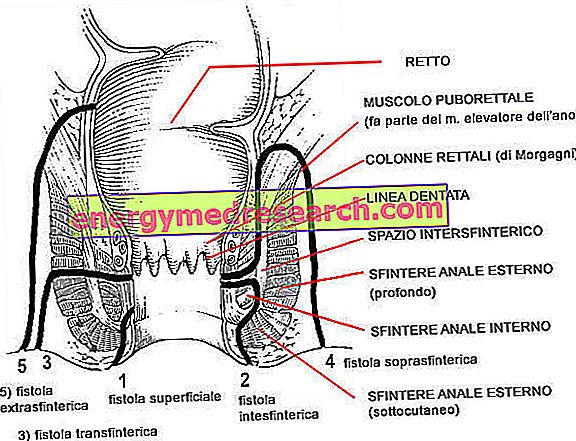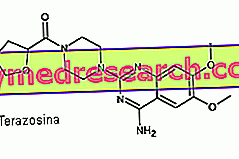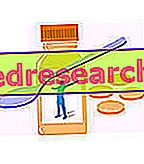Generality
Affective dependence is a relational pathology, in which love and what derives from it emotionally becomes the object of a morbid desire or an obsession .

The disorder is established between two people who have a very intimate and symbiotic relationship : in this form of dependence, what is eagerly sought after, is an affective relationship and everything that follows from this relationship.
In those who suffer from it, emotional dependence determines an apparent sense of well-being and gratification, but, at the same time, increases the strong need for a bond with the partner on whom he depends, on which he invests all his energies.
Furthermore, the subject presenting this condition:
- He has difficulty recognizing what his own needs may be, setting goals aside from those of the other person or the couple;
- He constantly lives in the anxiety of being able to lose the person who is the object of his addiction and needs constant reassurances that this will not happen;
- Within the couple, he tends to make continuous and exaggerated affective requests, not feeling in any case adequately loved.
The implication of the disorder is the influence that this exerts on the mind of those who suffer from it: the emotional dependency tends to turn, in fact, into a dysfunctional emotional or sentimental relationship, with the risk of suffering and losing one's freedom.
What's this
Affective dependence: what does it consist of?
Affective dependence (also called " love addiction ") is a relational disorder that presents with specific symptoms and characteristics.
Affective dependence influences the emotional dimension of the subject, transforming the relationship between a functional and a pathological couple. Being a relational disorder, it is necessary to consider both the protagonists of this situation, that is the dependent person and the person on whom one depends.
Characteristics of Affective Addiction
Affective dependency involves attitudes, moods and symptoms that are, for the most part, similar to those of other behavioral addictions .
These events include:
- PLEASURE or wellbeing deriving from the object of dependence (partner and relationship with the same);
- Need to increase the time spent with the partner while decreasing, at the same time, the moments invested in autonomous activities or contacts with other people ( TOLERANCE );
- Very intense negative emotions - such as anxiety, panic and depression - when the partner is physically or emotionally distant ( ABSTINENCE );
- Inability to think clearly about one's own situation and to control one's own behavior, alternated with moments of lucidity, in which the dependent person experiences shame and remorse ( LOSS OF CONTROL ).
Causes and Risk Factors
Affective dependence is a behavioral disorder that shares aspects common to all types of addictions and, at the same time, presents peculiar characteristics that concern falling in love and the romantic relationship .
Normality and pathological dependence
- In a sentimental relationship, it is absolutely normal, almost physiological, that a sort of physical and psychological dependence is established between the partners. Over time, with the passage from falling in love to a more mature love, a balanced coexistence of the individuality and autonomy of each partner should come to be determined. In some circumstances, a certain degree of "positive" dependence can be maintained, but in the relationship this takes on a functional, reciprocal and healthy value .
- In cases of emotional dependence, however, the person does not experience the need to regain their autonomy and independence, but wants to maintain the desire for all-encompassing fusion with the partner, experienced in the phase of falling in love. The dependence, initially physiological, can take on such extreme characteristics that it becomes pathological. In a sense, emotional dependence can be interpreted as an attempt to keep one's emotions under control: those who suffer from it try to manage their lives through experiences and behaviors that increase the feeling of well-being and remove any kind of unpleasant emotion, such as sadness, pain, loneliness and boredom.
Why is an emotional dependency established?
Unlike a normal romantic relationship, in which love is a sort of "positive" dependence, emotional dependency is inappropriate and is not reciprocal between the two partners. This condition is dangerously negative and "toxic" : without the presence of the partner, the person who lives an emotional dependency perceives his life as insignificant, thus renouncing his own space and needs, in order to stay with the object of his love.
Precisely on the basis of this consideration, deception is established at the base of emotional dependence : we think we love the other person, so it is natural to deprive ourselves of so many things for our partner. Focusing on the absolute and continuous need of the other, the subject gradually moves away more and more from himself and from his projects.
In this way, however, a sense of emptiness increases, hence the need for the other . In this way an inevitable vicious circle is generated which strengthens the emotional dependency.
Affective dependence: points in common with other dependencies
The morbid desire towards people and the relationship is similar to dependencies on both substances and behavior:
- In the early stages of falling in love, euphoria, abstinence (when one is obliged to stay away from the beloved), tolerance, dependence and relapse are manifested. In emotional dependence, these manifestations alternate in a continuous vicious circle.
- Love stimulates the brain areas related to reward, just like a substance of abuse; at the same time, completing a relationship can cause anxiety and depression.
- In both cases (approaching / departing), physical reactions are established which make the person lean towards establishing or maintaining an emotional relationship. Therefore, the relationship becomes the goal and, at the same time, the reward, which will allow the dependent person to reduce suffering and feel better (as happens for alcohol in people suffering from chronic alcoholism or in drug addicts who abuse drugs) .
What leads to being dependent on a relationship?
- BIOLOGICAL FACTORS
Affective dependence depends on the impairment of the neuronal circuit of dopamine, the neurotransmitter implicated in psychological processes of gratification and motivation. This substance is directly involved in the addictive mechanisms ; just think that it is released in the same way, during the use of many drugs (cocaine, nicotine, amphetamine, etc.). In the specific case of emotional dependence, the brain is "trained" to release the molecule in correspondence with particular behaviors, such as proximity to the person (object of dependence). Dopamine malfunction in the brain has also been demonstrated by instrumental neuroimaging examinations.
- FAMILY-TYPE PSYCHOLOGICAL FACTORS
Affective dependence can be favored by a family environment in which a constant tendency to intrude into thoughts, feelings and actions of the other components is manifested. In this type of family, the boundaries between roles and functions can become confused and a personality with emotional dependency can be structured in a member.
In some cases, the underlying reaction to the disorder may be closely related to the strongly negative and "traumatic" experiences experienced in the past (such as in the case of abuse and mistreatment that resulted in a high level of suffering). Affective dependence can also be the result of an experience lived during childhood (eg domestic violence, abandonment or separation of parents).
- INDIVIDUAL PSYCHOLOGICAL FACTORS

The predisposition to develop an emotional dependence can result from disorders and behaviors attributable to the impulsive-compulsive spectrum . Relational pathology is frequently accompanied by other conditions of psychological suffering: low self-esteem, anxiety, post-traumatic stress disorder and depression.
Affective dependency leads those who suffer to appease the fear of loneliness and rejection by idealizing a series of romantic fantasies . In the relationship with the partner, then, the bond of attachment that is established, attenuates the fear - conscious or unconscious - of being abandoned, deluding the dependent subject from the emotional point of view of being able to resolve his own shortcomings in self-esteem.
Affective dependence: who is most at risk?
Affective dependence is a widespread condition in contemporary society. Adult women are the most affected, but the disorder can also develop in men .
Affective dependency can affect people of all ages, including adolescents.
Symptoms and Complications
In everyday life, emotional dependence is reflected in a wide variety of typical manifestations and behaviors.
In particular, for those suffering from the disorder:
- Recognizing one's emotions or expressing thoughts is extremely difficult and a source of tension;
- Their needs are constantly set aside in favor of the needs of others, to the dedication of which large quantities of energy and efforts are concentrated;
- Self-esteem depends on the approval of the other: the person with an emotional dependency is firmly convinced that he is impotent, is not able to recognize his own qualities and skills and assumes adulation and adulation behavior towards others;
- The fear of being abandoned is so intense that most behaviors (like any kind of change) have the function of avoiding the sense of loneliness, the refusal or the expulsion of the loved person.
Furthermore, people who depend on a relationship often have the following attitudes:
- Obsessive need of the partner and intolerable fear of being alone;
- Difficulty in making decisions, without asking for advice and reassurance: the lack of confidence in one's ability to make correct choices and the extreme guilt when making mistakes, makes the possibility of making a mistake terrifying;
- Negative emotions such as anxiety, despair, a sense of abandonment and anger on the occasions when they are forced to be alone;
- Inability to create or defend one's own spaces or borders;
- Continuous denial or repression of anger;
- Acceptance of suffering so as not to feel abandoned.
Possible consequences of Affective Addiction
- The negative consequences that the relationship produces in all areas of one's life are ignored. Those who suffer from emotional dependency neglect their own needs and do not have the energy to complete projects or activities independently, being too busy to love and seek the consent of the other person.
- In some cases, much of the time is used to control the partner they depend on, with the possibility of the onset of paranoid jealousy .
- The person with emotional dependency tends to submit and be easily manipulated by the partner.
- For some people, relationships become a source of dissatisfaction and frustration . However, despite continuing this bond seems difficult, the thought of being deprived of it is far worse.

Warning! Affective dependence can take on an extremely serious gravity when it becomes so morbid that it is also violent. In these cases, a possible betrayal by the partner or the unilateral decision to interrupt the relationship could provoke reactions such as:
- Severe depression, which can also include suicide attempt or anorexia nervosa ;
- Persecutory behaviors - such as stalking - and violent towards the loved one, up to mistreatment and verbal and physical aggression .
Diagnosis
At present, emotional dependence is not yet among the officially recognized psychological disorders described in the "Diagnostic and Statistical Manual of Mental Disorders" (DSM), due to insufficient experimental data.
However, the "experts" agree in defining this condition as a specific behavioral psychological problem and classify it as "New Addiction", which also includes Internet addiction, pathological gambling and compulsive shopping.
Affective dependence: how is it diagnosed?
Affective dependency can be tackled with the help of psychologists and psychotherapists. Preliminary evaluation is essential to understand the reasons behind one's own discomfort and to frame the problem within the subject's life history, identifying its meaning and quantifying its scope. This also makes it possible to establish which therapies are most appropriate and in which combinations.
Treatment and Remedies
As with other kinds of addiction, the treatment of emotional dependency can take a long time.
The right approach to the problem requires:
- Recognition of one's emotional dependency;
- Awareness of the consequences that the disturbance has produced;
- Willingness to undertake a process of change.
In most cases, the approach to emotional dependency involves ending the dysfunctional relationship and starting to manage abstinence, making it possible for normal romantic relationships to develop.
Depending on the severity of the clinical picture, emotional dependence can be effectively addressed with the combination of various therapeutic approaches (psychotherapy, drugs, etc.).
Affective dependence: cognitive-behavioral therapy
The cognitive-behavioral therapy for emotional dependency is composed of different phases and begins with the careful evaluation of the case.
Specifically, with the support of the therapist, the patient retraces the history of the current and past relationships, outlining the events that contributed to the onset of the disorder and the negative and limiting thoughts associated with the relationship with the partner.
The awareness of the dynamics that are established represents the next step: the recognition of the mechanisms underlying the emotional dependence, on the part of the patient, becomes fundamental to understand how to manage possible relapses.
Cognitive-behavioral therapy focuses, therefore, on the management of emotions linked to the fear of loneliness, rejection and abandonment. Furthermore, the therapist helps the patient to change the unrealistic idealized expectations of love, recognizing their own needs and the need to establish personal boundaries.
Affective dependence: drugs
Regarding the pharmacological treatment of emotional dependence, antidepressant medicines are eventually prescribed. These allow normal neuro-transmitting operations to be restored and can help reduce severe physical and emotional symptoms.



